Image
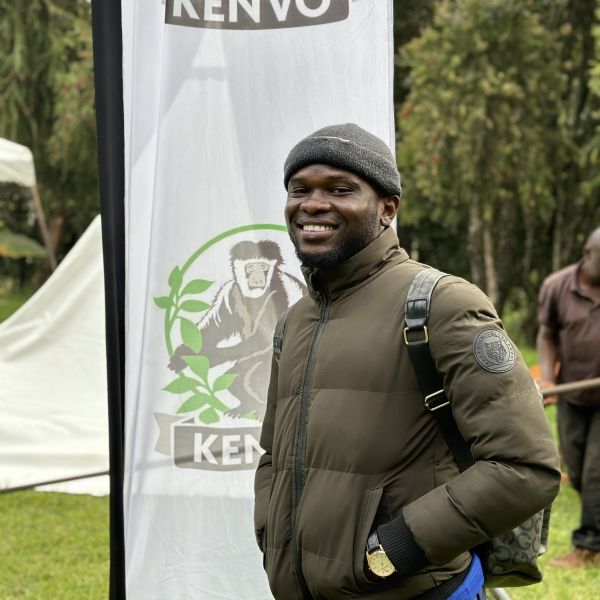
-
Aruna Bangura (he/him)
Founder, Bangs Circular
- 30 Under 30
- 2025
Aruna Bangura empowers local communities, youth, and women to cultivate creative Indigenous solutions and promote sustainable livelihood opportunities through engagement with the community, training, and education.
Sierra Leone, Age 26
How are you using education to build more sustainable and equitable communities? Tell us about your EE work and impact.
Bangs Circular is driven by education. The cornerstone of our mission is to build sustainable and equitable communities. Our Environmental Education Initiative empowers rural youth with skills and knowledge to pursue sustainable beekeeping, promoting biodiversity conservation and sustainable land use, and addressing pollinator decline. Through community-led training, participants learn sustainable beekeeping practices, forest conservation, and ecological restoration of pollinators, turning local knowledge into environmental stewardship.
We have partnered with local community members to integrate environmental literacy into our everyday learning through the use of Indigenous knowledge. This connection supports community members in valuing nature and the ecosystem. This has helped foster a generation that values protection and understands the economic potential of community-led enterprise. As a result, this provides training for livelihoods, creating viable sources of local income while protecting Indigenous forests.
The impacts are tangible, through increased local household income that helps improve livelihoods. Bangs Circular is not just about producing honey; it's about building resilience, pride, and opportunity in rural communities. We aim to scale the EE program to deepen community knowledge, creating a replicable model for sustainable livelihoods rooted in education and ecosystem services.
Tell us about your journey to where you are today. What inspired you? What has your path been like?
The journey of Bangs Circular began with a deep respect for nature and a passion to uplift rural communities. Growing up near Indigenous forest communities, I have witnessed both the beauty of biodiversity and the impacts on local communities who are using it for their livelihoods. The decline in the bee population and deforestation sparked a question: could pollinators be a solution to support local livelihoods?
Being inspired by traditional beekeeping and building resilience for rural women, I started small: one hive, one harvest, and one story. I learned about the importance of forests through Wangari Maathai's forest regeneration ecosystem. Bangs Circular was born from this vision to build environmental protection through livelihood empowerment.
I come from a humble path with a transformative vision. From navigating farming to training as an environmentalist, each step has taught me a lesson of patience, purpose, and partnership. I have grown into a community driven by initiatives that are embedded in the values of education, equality, and building ecological balances. Today at Bangs Circular, protecting bees and building sustainability is more than just an initiative; it is a sense of belonging and creating a sense of ownership, empowering communities and inspiring others to see the value of nature not as a resource to exploit but as a partner to nurture.
How can people learn more about or support your work?
People can learn more about Bangs Circular by visiting our website or following us on social media. We share updates on progress, education, and sustainable practices and stories from local communities we work with. Our goal is to create accessible, engaging platforms where people can connect with nature, learn about bees, and see the impact of ethical honey production.
Support can be in different forms. Purchasing our product (Tiwai honey) directly contributes to rural livelihoods, addressing the decline in bee populations and helping with forest conservation. Donations can also help with the expansion of training programs, provide equipment to new beekeepers, and reach more communities through education and training. Partnerships with educators, researchers, and organizations that share our vision on sustainability are invaluable.
Volunteers can help with outreach, hands-on training, and reforestation, and we’re open to collaboration, product development, community engagement, and forest conservation.
A Little More About Me
What (or who) keeps you hopeful for the future?
Seeing young people embrace sustainability and community-driven solutions gives me hope every day.What advice would you give to the next generation of leaders?
Lead with empathy, listen deeply, and build systems that uplift others not just yourself.What are you happiest doing?
I’m happiest working alongside communities, sharing knowledge, and watching ideas blossom into impact.
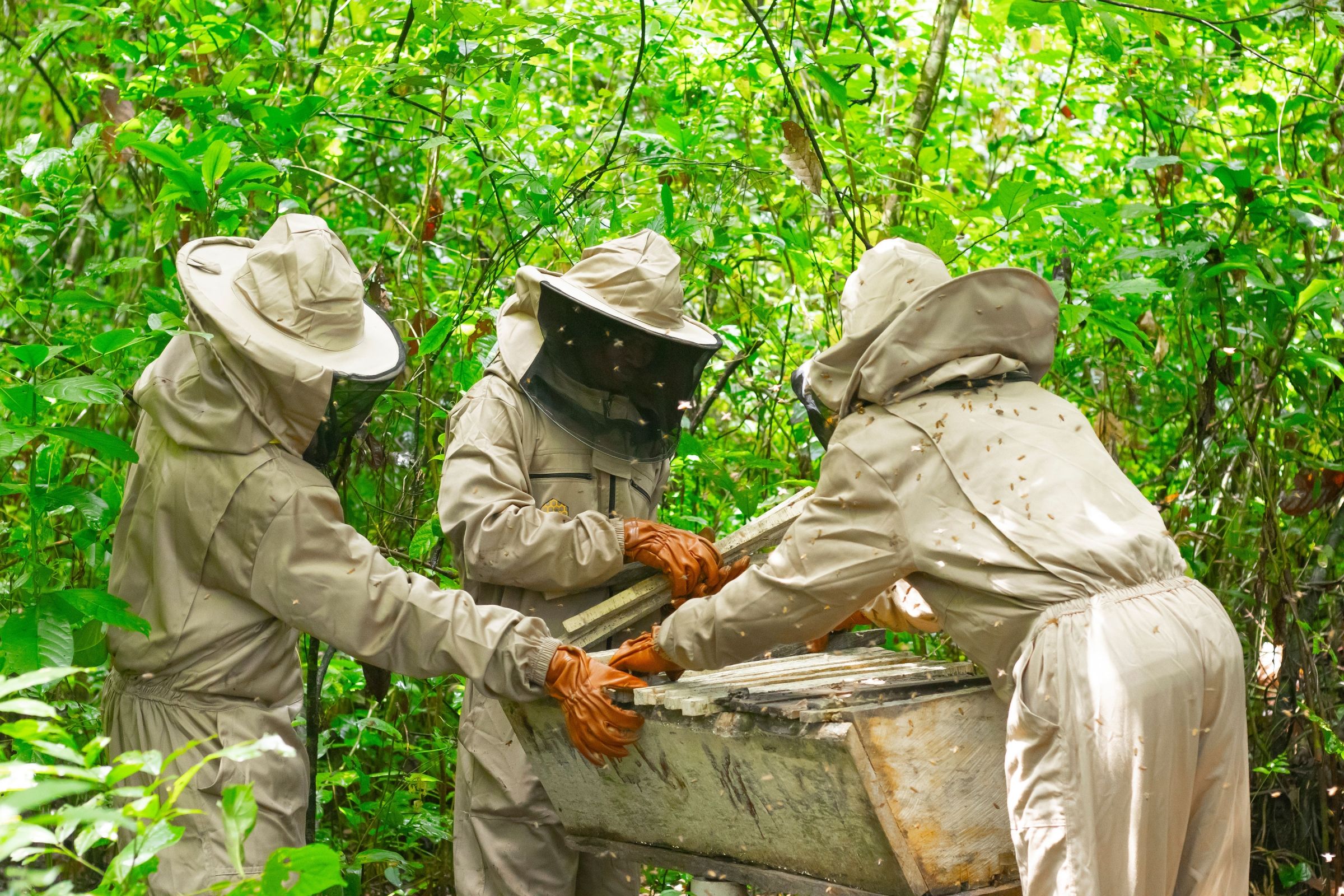
The Iris Project Beekeepers. Photo credit: Steve Misati
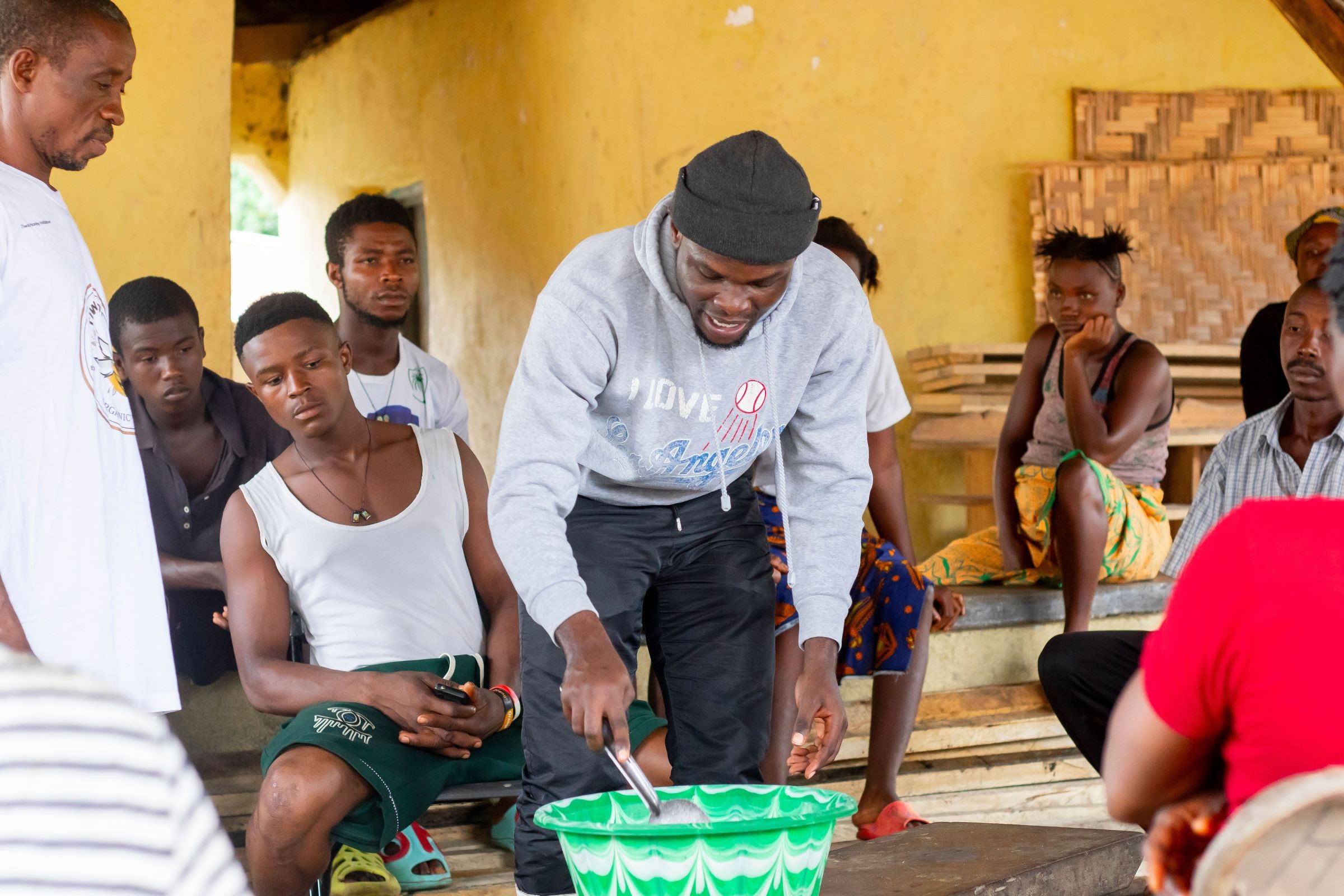
Aruna at a community beekeeping workshop. Photo credit: Steve Misati
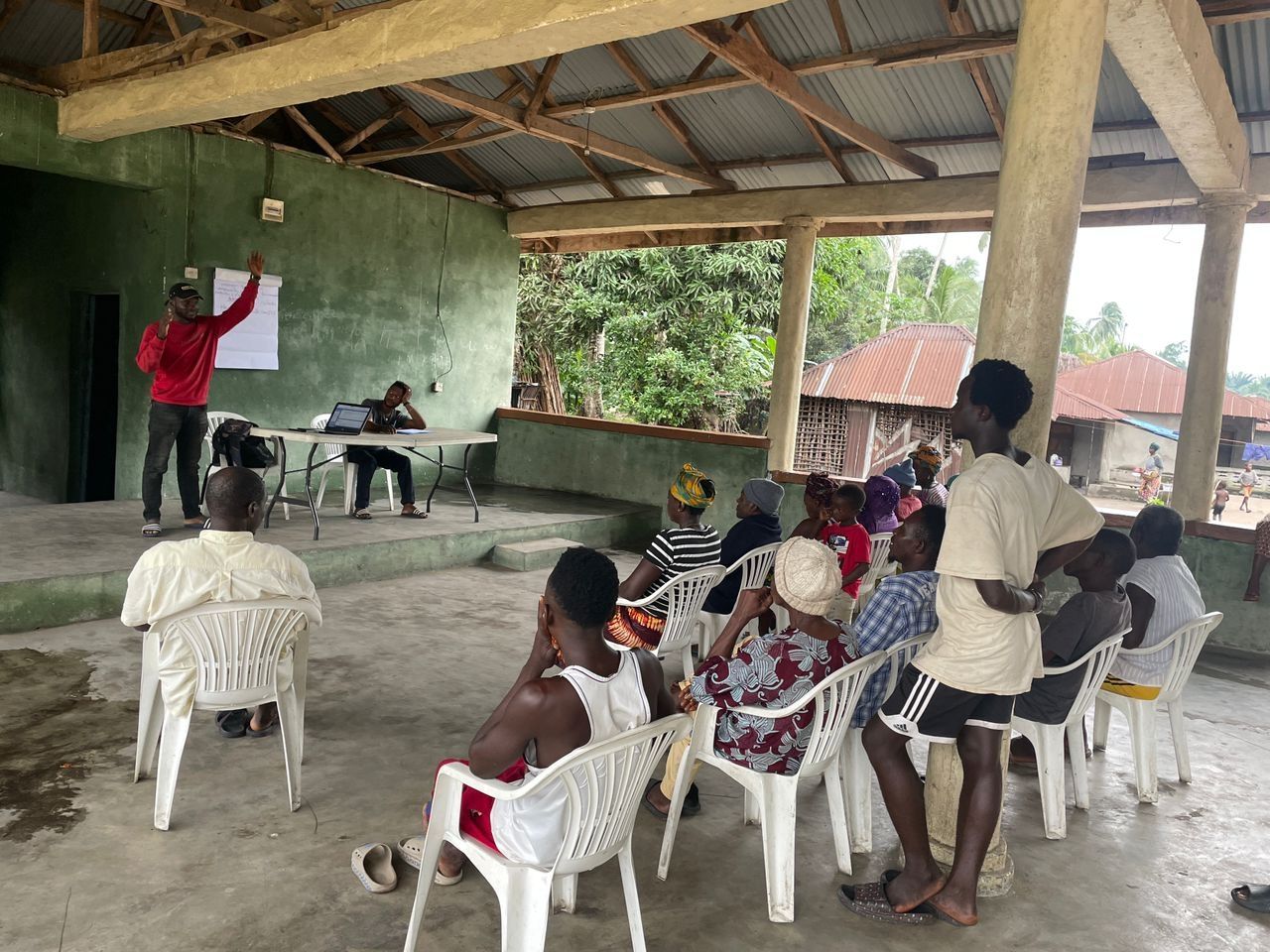
Ezekiel Kargbo during a field trip. Photo credit: Ezekiel Kargbo
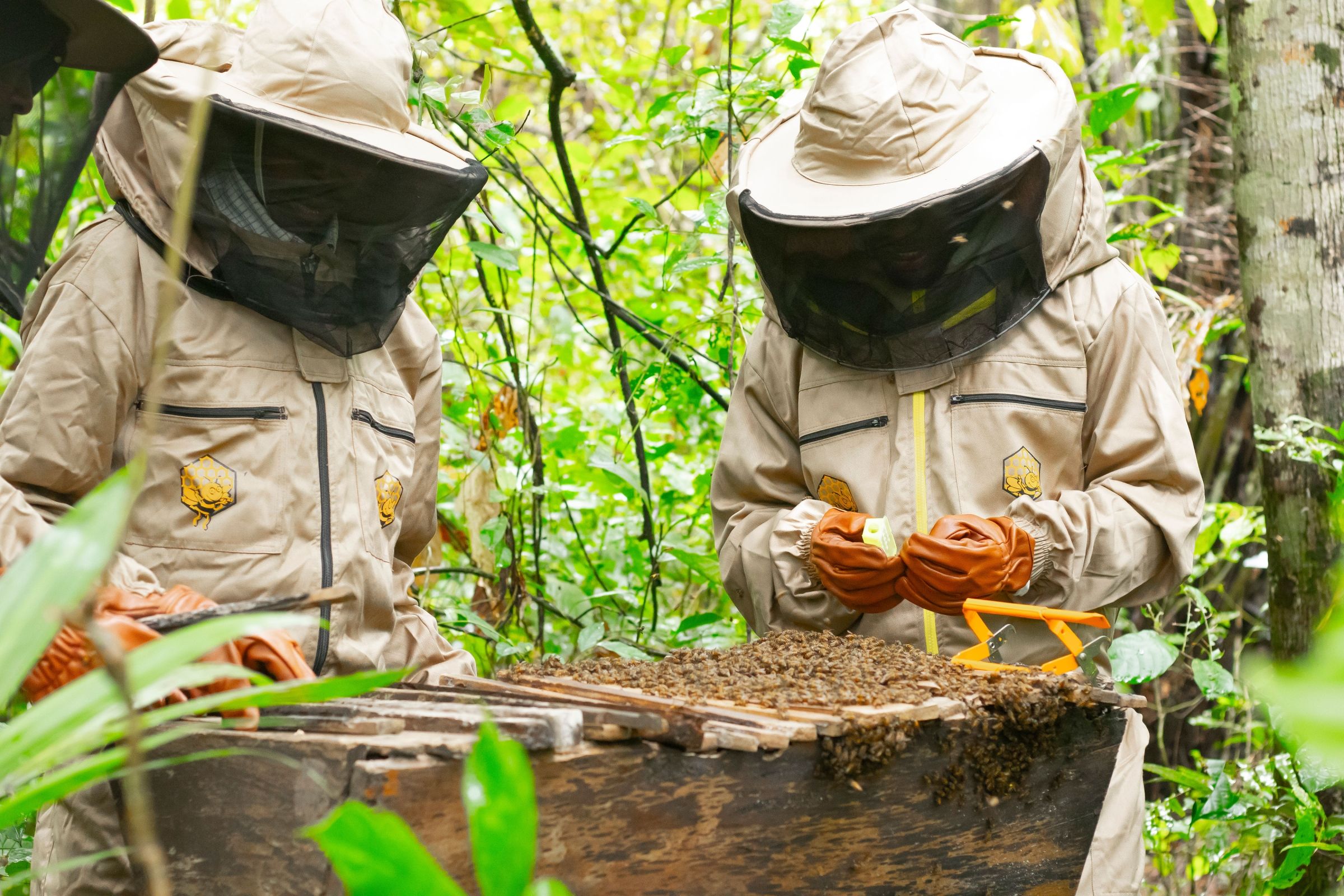
The Iris Project Beekeepers. Photo credit: Steve Misati
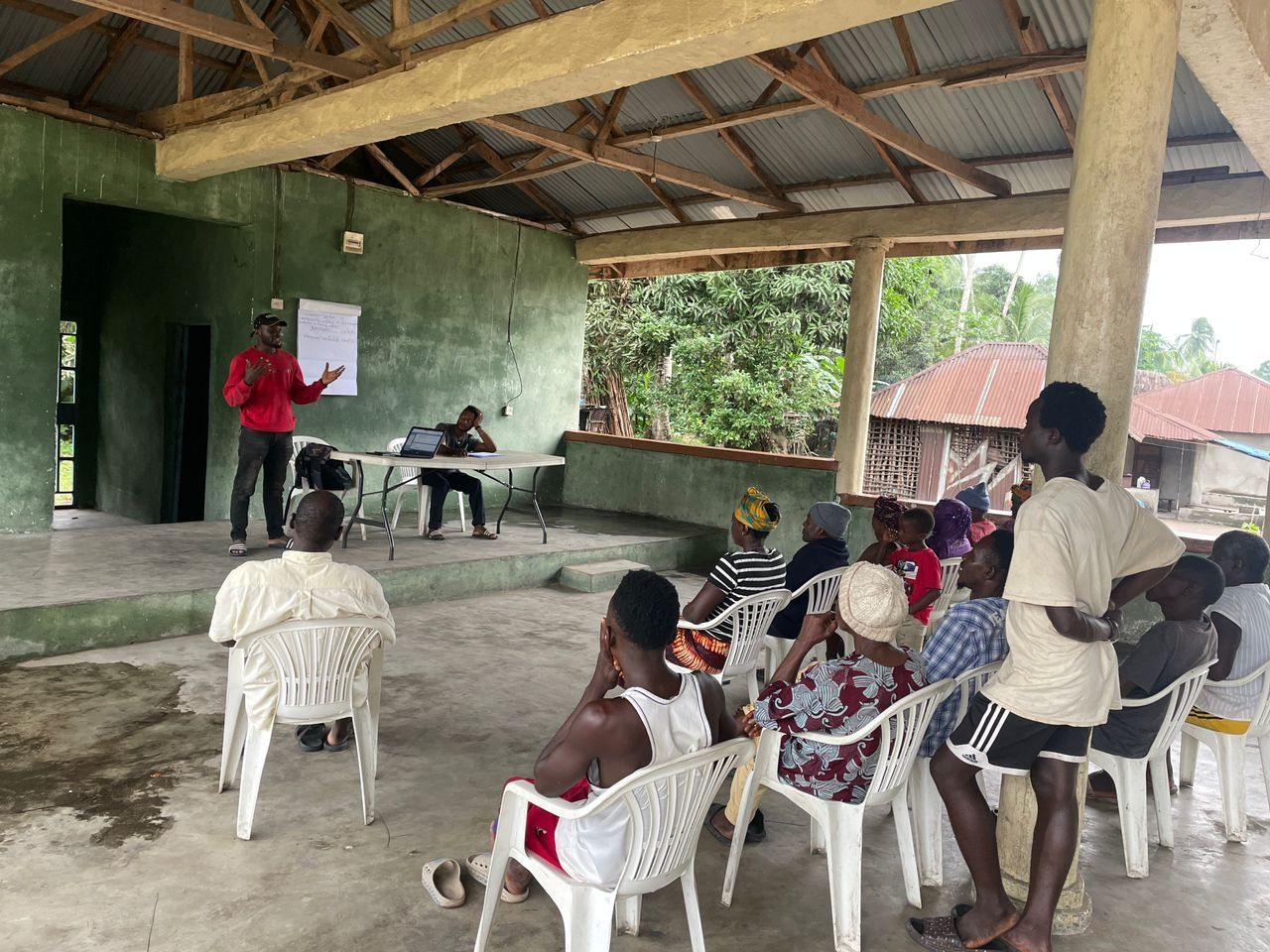
Ezekiel Kargbo during a field trip. Photo credit: Ezekiel Kargbo